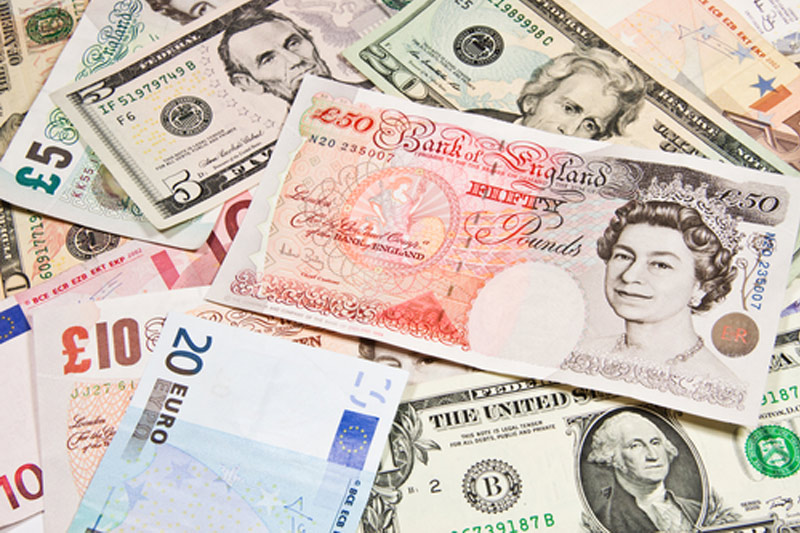Investing.com – The US dollar rose higher on Thursday, while the euro fell ahead of an ECB meeting and the pound fell as British wage growth slowed.
At 04:00 ET (09:00 GMT), the Dollar Index, which tracks the greenback against a basket of six other currencies, was trading 0.1% higher at 103.550, bouncing after losses this week on increased optimism that the Federal Reserve will lower interest rates. rates in September.
Dollar could be higher
The dollar rebounded on Thursday after falling to its lowest level since March in the previous session.
Confidence that the US Federal Reserve will start cutting interest rates at its next meeting in September to boost a slowing economy has weighed heavily on the dollar.
Economic data due later in the session is likely to show a weekly increase, while signaling a slight improvement in conditions.
Sterling is falling as wage growth slows
traded 0.2% lower at 1.2985, following the release of data showing UK wage growth slowed in May but remained at high levels.
Data showed that excluding bonuses – a key measure of inflation pressure for the BoE as it considers cutting rates next month – grew 5.7% in the three-month period ending in May, compared with a year earlier.
This marked a decline from 6.0% the previous month, and resulted in money markets raising the probability of a rate cut next month from 30% to 39.1%.
The next one will meet in early August.
fell 0.1% to 1.0928, down slightly from Wednesday’s four-month peak ahead of a European Central Bank policy-setting meeting later in the session.
The central bank is widely expected to keep interest rates stable following its June cut, so much of the focus will be on the ECB president’s comments at the accompanying press conference.
“Our team concludes that the ECB is likely to welcome current market prices for further 25bp rate cuts in September and December and will prefer not to move the needle today,” ING analysts said in a note.
The Yen gives back some gains
In Asia, yields rose 0.2% to 156.47, after earlier falling to 155.38.
The sharp appreciation of the yen, which saw the pair fall from near 162 last week, led to increasing speculation that the Japanese government had intervened again in the currency markets.
fell slightly lower at 7.2586, with the pair steady below eight-month highs.
Sentiment toward China worsened when a Bloomberg report showed the U.S. is considering tighter restrictions on China’s technology and chip industries — a move that could anger Beijing and spark a renewed trade war among the world’s largest economies cause.


